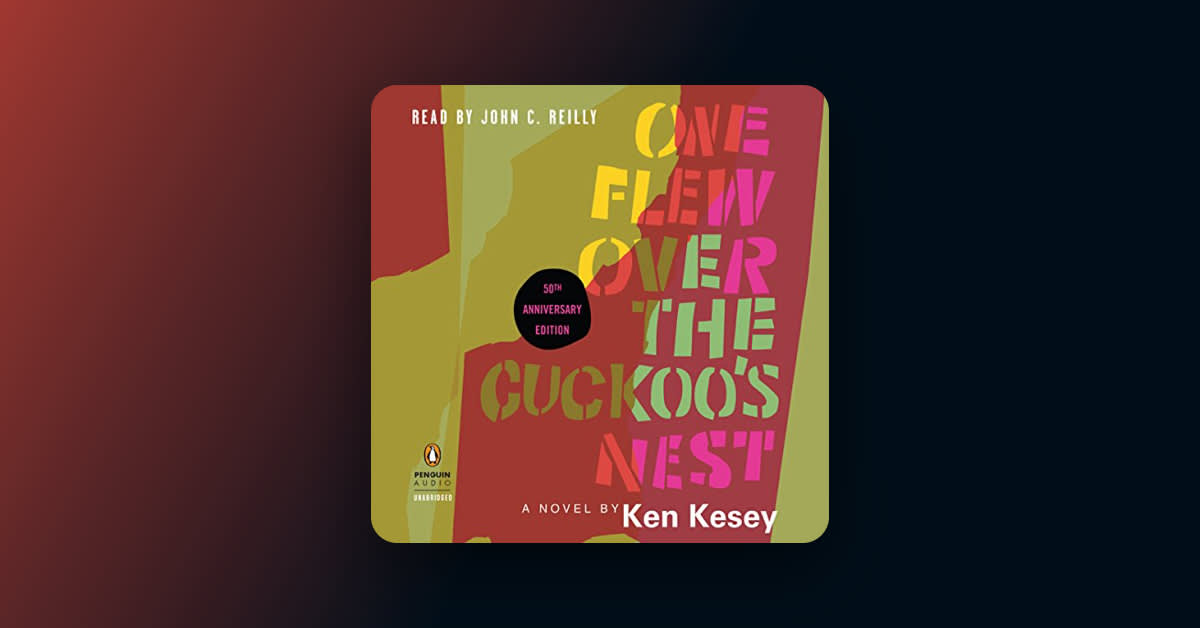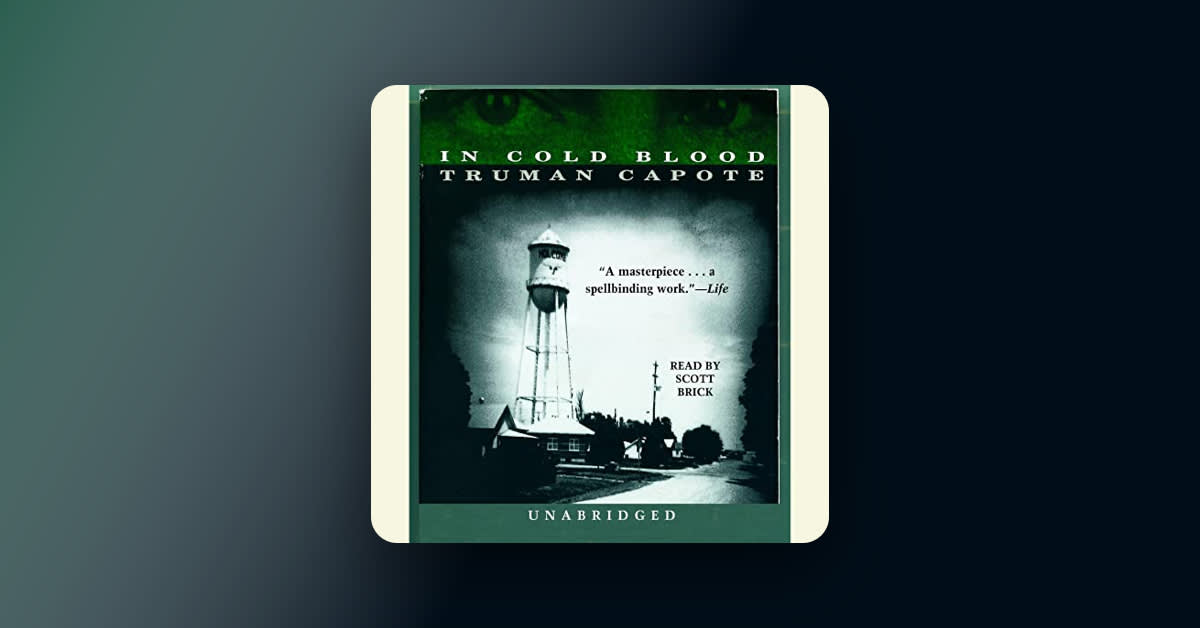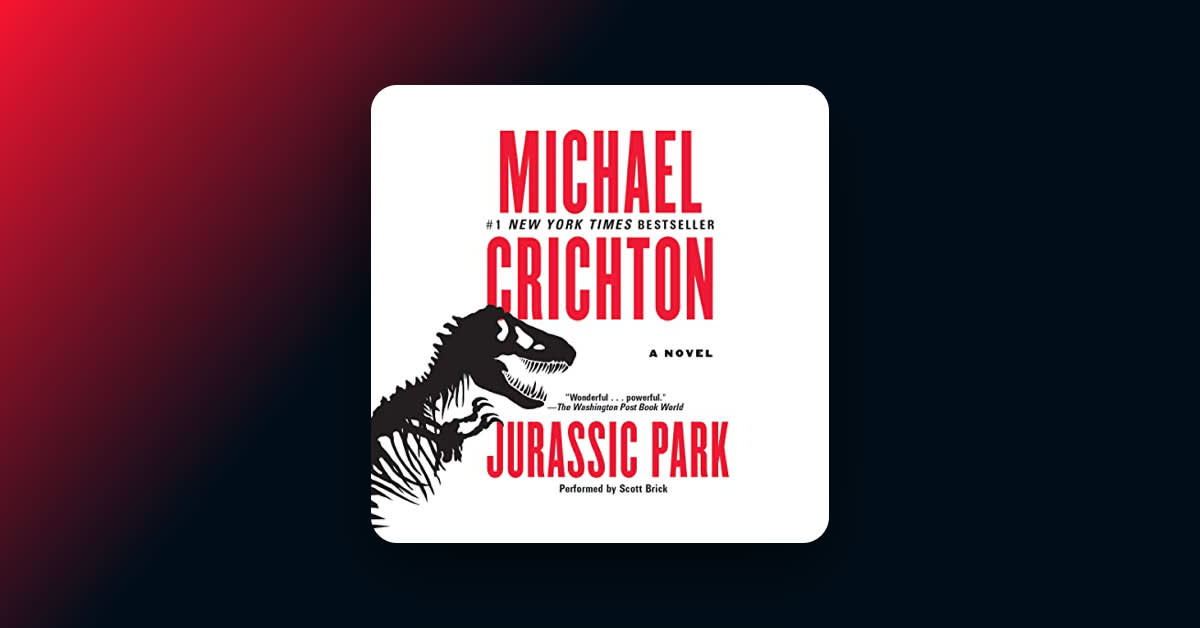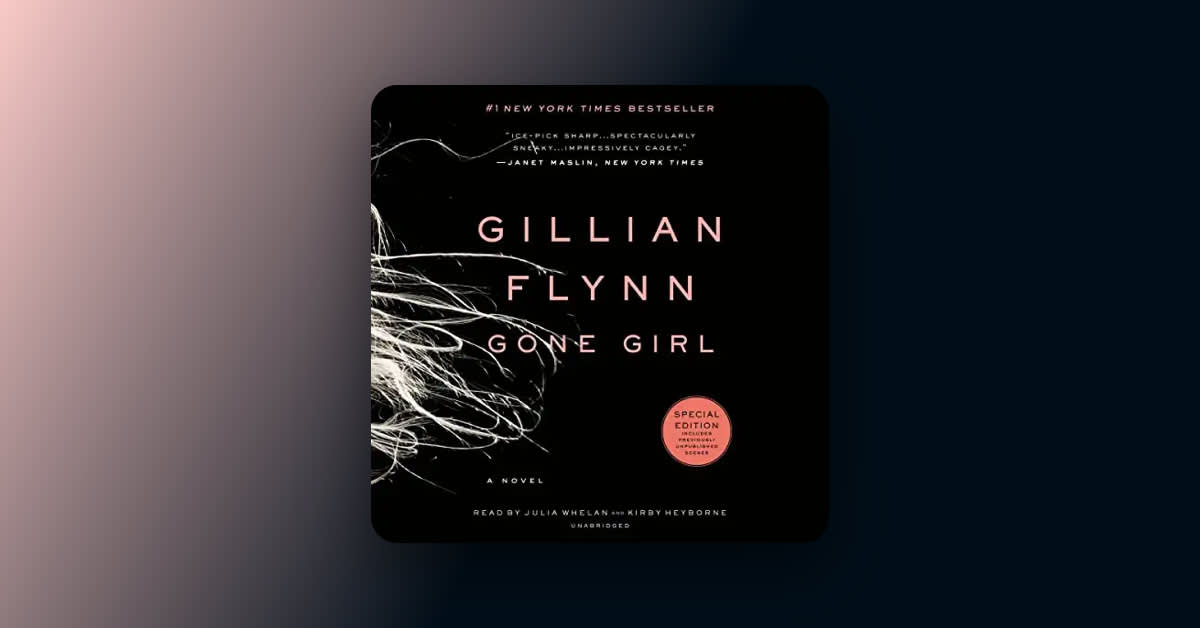Why it's essential
Boris Karloff’s performance as The Creature is synonymous with the dawn of sci-fi horror on film—a genre that may not have existed without Mary Shelley’s magnum opus.
Featured in 100 Essential Screen Adaptations.
What is Frankenstein about?
A monstrous tale of ambition, obsession, and revenge, Mary Shelley’s Frankenstein chronicles the downfall of a mad scientist who, in his foolish attempts to play God by defying the limits of life and death, unleashes satanic forces upon the world.
Editor's review
Specializing in curation, Haley is obsessed with marine life, music, and all things macabre, in addition to making lists of her favorite audiobooks.
I was muscling through a difficult breakup and grieving the loss of my grandmother, who had passed away in the summer before my senior year of college, so I felt more than a little overwhelmed by the idea of writing my English department thesis that fall semester. Towards the end of September, when I still had not managed to select a research topic for my paper, my brilliant advisor, who knew that I was both fascinated with Gothic literature and rapidly running out of time, handed me her copy of Frankenstein, and gently urged me to read it over the course of a couple days. Frankly, she did not have to ask me twice to devour the classic with urgency.
I have always been a fan of the macabre, so I figured a story about a mad scientist who robs graves for body parts in order to sew together a creature would be right up my alley. That being said, I was immediately blown away by how many thrilling and thought-provoking layers comprise Mary Shelley’s iconic novel.
Of all the fascinating questions that Frankenstein raises, its most infamous has to be: Who is the monster, and who is the man? (That’s in addition to the notorious confusion around who the title refers to; Frankenstein is named for the monster’s creator, Dr. Victor Frankenstein, while his creation is simply referred to in the text as "The Creature," a choice that makes sorting out protagonist from antagonist all the more challenging.) The story is as much about corruption as it is about creation, and listening to Victor and his creature narrate their two perspectives while simultaneously making each other’s lives a living hell proves just that. What makes this story so essential is just how difficult it will always be to sympathize with one character entirely over the other.
A less frequently discussed fact about Frankenstein is that is an epistolary novel, making it perfect for audio! The story is bookended by letters that Robert Walton, a seafaring explorer in search of the North Pole, writes to his worried sister, in which he relays Victor Frankenstein’s shocking confession, which the scientist shares after being rescued aboard his ship. However, despite the riveting attention to detail within Walton’s letters, he ultimately leaves listeners with a question that I find just as fascinating as the last. Will he heed Frankenstein’s saga as a cautionary tale and reconsider following his own ambitions to the literal end of the Earth?
Now, just as intensely as Victor Frankenstein captivates Robert Walton with his frightening narrative, my interest in unraveling Mary Shelley’s story swiftly snowballed into an obsession, turning her novel into my guiding star during a period of personal despair. Not only could I melodramatically relate to The Creature’s pleas for a companion (like I said, I was really not handling my breakup well at all), but I genuinely started to consider myself a mad scientist, as I spent multiple sleepless nights copying and pasting together passages of text in order to strengthen my thesis and bring my creation to life.
I soon began to buckle, literally, under the pressures of perfectionism I had relentlessly imposed upon myself. No, I did not have Lyme Disease or any other of the grave afflictions I had begun to suspect. Instead, I had simply allowed my stress to spiral into an episode of psychosomatic turmoil, leaving me with a flare-up of sciatica so severe that I lumbered around campus for months with a gait that closely resembled the one Boris Karloff adopted in his famous film portrayals of the monster.
Nonetheless, I felt I had no other option but to continue sacrificing my sanity for the sake of my endeavor. You see, the more I learned about the sources of maternal grief in Mary Shelley’s life, the more I came to consider my senior thesis as a means of mourning my grandmother’s death. Not only did Shelley’s mother, pioneering feminist Mary Wollstonecraft, pass away from complications caused by her own birth, but Shelley herself suffered from the loss of an infant, a trauma scholars believe was integral to the conception of Frankenstein. Shelley reportedly once had a dream in which she resuscitated her child’s cold body by the warmth of her fireplace. In addition to drawing clear parallels to Frankenstein’s devotion to restoring life back to pieces of the dead, the vision likely inspired the novel’s alternative title: The Modern Prometheus. With that in mind, I found comfort, as well as a sense of connection to Shelley, in keeping a flickering candle next to my grandmother’s picture on my desk as I worked.
To this day, I am still not sure how polished the final draft of my thesis wound up because, much like Victor himself, I found that the personal stakes I had poured into the assignment made it nearly impossible for me to confront my creation. But eventually, I had no other choice than to let my monster loose and submit my essay for grading. (Honestly, my paper was way overdue, and I was in desperate need of leaving for winter break.)
For helping me to mourn my grandmother’s death, grapple with my own ambitions, find focus after a breakup, and remain trusting in literature to always teach me an unexpected lesson about myself, Frankenstein will always be my favorite novel. Told in a series of letters, confessions, and eye-opening revelations, it is truly a tale that is meant to be heard. I hope Dan Stevens’s sublime narration of this story captures your attention from the start and, like me, never lets you go.
Did you know?
Frankenstein is often considered the first science fiction novel.
The seed of the story took root one rainy summer, when the poet Lord Byron challenged his friends, John William Polidori (The Vampyre) as well as Mary and Percy Shelley, to write scary ghost stories.
Mary Shelley published the first edition of her novel anonymously in 1818, leading few readers to suspect that such a spine-tingling—and successful!—book had been written by a woman.
According to popular lore, Mary Shelley lost her virginity, to poet Percy Bysshe Shelley, on her mother’s grave. While it’s impossible to know for sure, Snopes says the story is probably true.
What listeners said
"I purchased this book expecting a great story about a giant monster and the struggle to kill it. What I found was one of the greatest, and most emotionally complex stories I've ever read. By the end, I came to the inescapable conclusion that the villain/monster of the story is Frankenstein, not his creature." —Cabazone, Audible listener
"I think Dan Stevens is one of the best audiobook performers I have ever heard. He brought this story to life. It was so easy to just get into the story and actually have sympathy for both Frankenstein and the monster he created. I did not expect that as I have always thought of this book as a horror story." —Nancy, Audible listener
"I never had the opportunity to read Mary Shelley's classic horror story but listening to the incredible narration by Dan Stevens was a fantastic way to experience this masterful piece of writing. The book is at turns exciting, action-packed, sad and dramatic. Dan Stevens' nuanced performance captures every mood from every character. Three months after listening to this book and I'm still thinking about it. This could be my favorite Audible book of all time." —Janna, Audible listener
Quotes from Frankenstein
"Nothing is so painful to the human mind as a great and sudden change."
"Beware; for I am fearless, and therefore powerful."
"I do know that for the sympathy of one living being, I would make peace with all. I have love in me the likes of which you can scarcely imagine and rage the likes of which you would not believe. If I cannot satisfy the one, I will indulge the other."
"I could not understand why men who knew all about good and evil could hate and kill each other."
"Life, although it may only be an accumulation of anguish, is dear to me, and I will defend it."
About the author
Mary Wollstonecraft Shelley was the only daughter of philosopher William Godwin and feminist Mary Wollstonecraft. Her life was marked by tragedy—starting with the death of her mother weeks after her birth in August of 1797—and determination. As a child, Mary was shaped by the spirited discussions among her father’s guests, including William Wordsworth and Samuel Coleridge, and her troubled relationship with her stepmother. At 16, she embarked on a romantic adventure, running off to Italy with the poet Percy Bysshe Shelley. They married two years later, in 1816, after the death of their infant daughter and the suicide of Percy's wife. Mary Shelley wrote her first and most famous novel, Frankenstein, or, The Modern Prometheus, at age 18. First published anonymously in 1818, Frankenstein has remained in print for more than 200 years. Widowed at 24, Mary devoted the rest of her life to publishing her late husband's poetry, raising their son, and writing essays, travelogues, and fiction. Her literary contributions include the historical novel Valperga, the apocalyptic novel The Last Man, and the novella Mathilda, discovered a century after her death. She died of a brain tumor at the age of 53.
About the performer
Dan Stevens is an English actor who first drew international attention for his role as Matthew Crawley in the acclaimed period drama Downton Abbey (2010-2015). His film credits include Sir Lancelot in Night at the Museum: Secret of the Tomb (2014), The Beast in Disney's live action adaptation of Beauty and the Beast (2017), Lorin Willis in the biographical legal drama Marshall (2017), Charles Dickens in The Man Who Invented Christmas (2017), and Russian Eurovision singer Alexander Lemtov in Eurovision Song Contest: The Story of Fire Saga (2020). From 2017 to 2019, he starred as David Haller in the FX series Legion. His varied audiobook performances include Ian Fleming's Casino Royale, Agatha Christie's Murder on the Orient Express, Mitch Albom's The Time Keeper, Roald Dahl's Boy, and Homer's The Iliad.
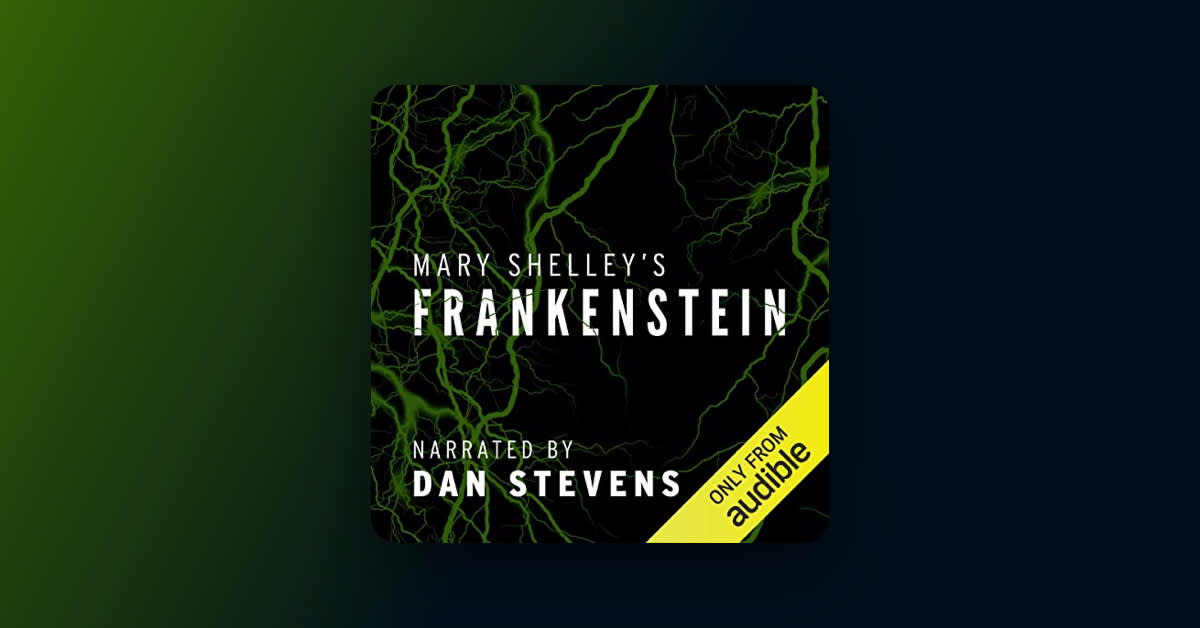
![Dracula [Audible Edition]](https://m.media-amazon.com/images/I/81iTqQPxj7L._SL800_.jpg?w=3840&q=70)





